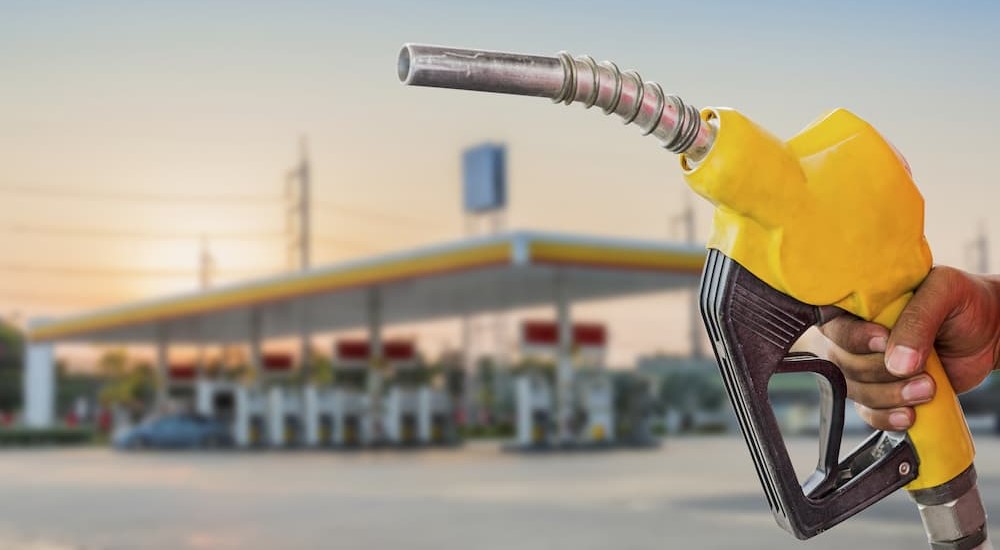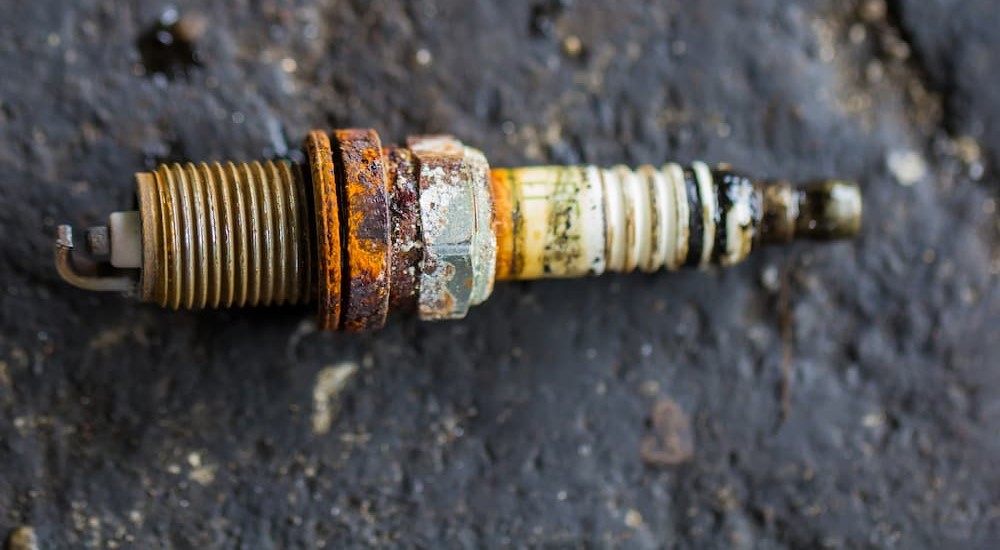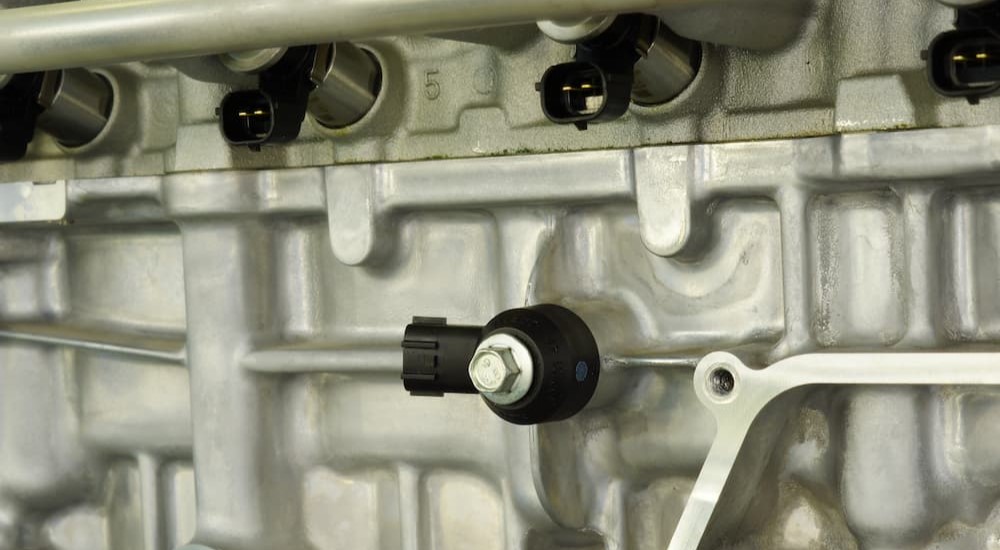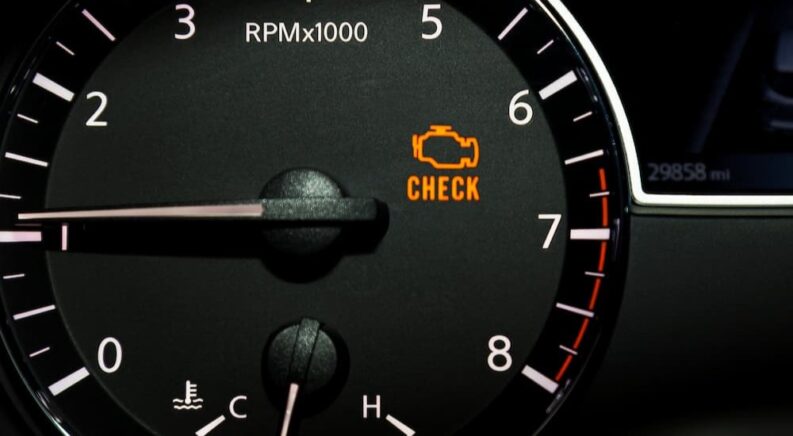While police sirens might run a close second, few sounds can ruin a drive as quickly as an engine knock. One moment you’re headed down the road in peace, and the next your engine is making that tell-tale pinging noise that will have you headed straight for the nearest service station. Sounds can be subjective, but whether you’re hearing what you would describe as a knock, scrape, tap, or ping, they’re all signs of an engine that needs attention.
So what exactly is engine knocking and how can it be avoided? In most cases, these sounds can be attributed to premature combustion happening in one, or many, of your engine’s cylinders. While some knocks, known as “rod knocks” can be traced to the pistons, a vast majority fall under the banner of combustion knocks. Vehicles are designed to run on a specific fuel/air mixture that, when ignited by a spark plug, creates controlled, precisely-timed detonations in the cylinders of your engine. When the fuel/air mixture is detonated prematurely, these tiny explosions can start to collide, wreaking havoc on your engine and creating the unforgettable knocking noise that all drivers dread. Let’s take a look at some of the major causes of engine knocking and explore possible solutions.

Causes of Knock – The Wrong Fuel
Regular, 87-octane fuel is the go-to choice for most drivers, but its affordable price can come with some disadvantages. If you’ve got a vehicle with a performance-tuned engine, chances are you’re going to have to pony up for the premium blend if you want to ensure consistent power and performance. High-octane fuel is more refined than lower grades, providing a more controlled detonation in vehicles designed to run on the stuff. It all comes down to compression. Higher-grade fuels can withstand more compression before igniting, so using low-octane fuel can easily result in premature combustion and alarming knocking noises.
That said, higher-octane fuel isn’t always the right choice. Before you switch to a higher octane fuel in a bid to solve your engine-knocking issues, take a close look at your owner’s manual. Most cars on the road today are designed to run on 87-octane and despite what drivers might think, higher octane doesn’t translate to higher quality. Filling up with premium or even midgrade gas can lead to long-term engine damage and decreased fuel efficiency. $2.1 billion is wasted annually by U.S. drivers filling up their vehicles with higher-than-recommended octane, according to a recent study by AAA, and you don’t want to be a part of this statistic.
Causes of Knock – Lack of/Dirty Oil
Motor oil plays a vital role in any gas-powered vehicle, lubricating vital components and keeping the whole mess of whirring, pumping, and spinning machinery going with minimal wear and tear. Low oil levels can lead to massive headaches for drivers, including the dreaded engine knock. Oil provides the engine’s cylinders with the lubrication they need to get the job done, moving everything along and ensuring consistent timing, but if you’re running low on oil or using an inferior product, problems might start to arise.
In addition to causing knocking noises, low engine oil can also cause serious wear to the piston rings and cylinder walls, resulting in a “piston slap” that can further damage the piston and cylinder. Luckily, topping off your engine oil is an easy maintenance task that any driver can tackle. Even if your vehicle is calling for a full oil change, the process is still relatively simple or affordably performed at your local lube shop. If neither of these options seems to solve the problem, then try switching to a higher-quality oil before looking into other potential causes for the knocking.

Causes of Knock – Old or Dirty Spark Plugs
Operating your vehicle with old, worn-out spark plugs—or the wrong spark plugs altogether—is one of the most common causes of engine knock. Given the role they play in igniting the air/fuel mixture within each cylinder, spark plugs play an essential part in the internal combustion process. That said, they’re bound to wear out over time, which is why it’s so important to make regular spark plug checks part of your vehicle maintenance routine. While it varies from vehicle to vehicle, most automakers recommend replacing your spark plugs every 30,000 miles or so.
That sort of longevity is especially impressive when you consider the fact that the average spark plug fires 400 times per minute, per cylinder, meaning a four-cylinder engine will see 1,600 individual spark plug ignitions every minute. Over time, these spark plugs can become fouled with oil, dirt, and other grime, reducing engine performance as well as leading to the type of irregular combustion that can result in engine knock. It’s also important to make sure you have the right type of spark plug installed in your vehicle. Specific engines are built to accommodate very specific sizes and types of spark plugs; making the wrong choice with a replacement can result in a spark plug that burns a little too hot, setting off random detonations and leading your engine to knock the night away.
Causes of Knock – Carbon Deposits in Your Engine
If you’ve ever read the fine print on a gas pump, you might notice a mention of detergents that have been added to the fuel. Before you use a little 87-octane on your next load of laundry, be aware: these detergents are designed to prevent and remove harmful carbon deposits on your engine’s cylinders. Carbon deposits allow the surface of the cylinder to retain heat, creating “hot spots” that can result in premature ignition while robbing the cylinder of volume and reducing overall efficiency. Carbon deposits are almost inevitable in any gas-powered engine, but they can be kept under control using a few simple tricks.
Higher-quality fuel tends to lead to less carbon buildup, but as we mentioned before, they’re not the right choice for every vehicle. Your local auto parts shop is full of specialized fuel additives and treatments that can help to remove such deposits, but if you’re looking for a more obnoxious route, revving your engine at high RPMs for a short time can also help to burn off some of the excess carbon. A full chemical cleaning of the intake system takes the process one step further, but in some cases, a full engine tear-down might be in order when important components succumb to the damage caused by carbon deposits.
Causes of Knock – Faulty Fuel Pump/Injectors
A faulty fuel pump or fuel injector can result in a poor fuel/air mixture within the cylinder. These parts will normally last the life of a vehicle, but they can become worn out over time, resulting in some underwhelming performance that’s sure to mess with the timing of the combustion process. If you suspect a faulty fuel pump or fuel injectors, and you don’t have the equipment to get in there yourself, then you should schedule an appointment with your local garage and let the experts take a look.

Causes of Knock – Malfunctioning Knock Sensor
Cars just keep getting smarter, making some of the old engine-knocking issues a thing of the past. Many of today’s vehicles come with a knock sensor that monitors the engine for any unusual knocks, alerting the vehicle’s electronic Engine Control Unit (ECU), which will automatically correct the problem. The issue arises when knock sensors go bad, throwing out false readings or failing to address the engine knocks on their own. If your knock sensor fails, you’ll likely notice an illuminated check engine light — and possibly some knocks from the engine as well. The knock sensor is easy to replace with the right equipment, or you can take your vehicle to your favorite shop and have the work done.
Causes of Knock – Worn-Out Rod Bearings
Here’s one potential cause of engine knocking that has nothing to do with detonation-related issues. As your vehicle moves down the road, your pistons fire, turning a crankshaft and eventually spinning your tires. The bearings that connect the pistons to the crankshaft can wear over time. This can cause the pistons to rattle off the crankshaft, resulting in distinctive “rod knocks” that aren’t easy to address. Given their location deep inside the engine, replacing rod bearings can necessitate a full tear-down of the engine, a long and expensive process that can cost thousands of dollars. The good news is that with proper maintenance, this issue might never arise, providing a good monetary incentive to follow the service schedule for your vehicle.
Get To Know Your Vehicle and Care For It
Engine knocking can be an alarming sound, but if you know what to look for, the root causes usually aren’t that difficult to figure out. While I’ve outlined some of the most common culprits (from knock sensors and fuel pumps to carbon deposits, rod bearings, and oil) engine knocking can be traced to any number of components in your vehicle. A number of the issues we looked at above can be easily avoided by getting familiar with your vehicle’s owner’s manual. This handy glovebox guide serves as a road map to the vehicle itself, offering all sorts of helpful tips, tricks, and guidelines for safely operating your vehicle and caring for it to keep it on the road as long as possible. While many drivers only break it out in the case of an emergency, a read-through could save you from a big headache down the road.

